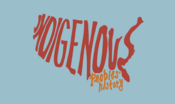Indigenous Peoples' History


Happy Women's History Month! Women around the world are—and have been—at the forefront of campaigns for human rights and environmental justice. In this edition of The Moment, you'll find resources for teaching about women's leadership and contributions all year.
The official theme of Black History Month 2020 is “African Americans and the Vote.” Black changemakers and activists have been fighting for equal rights since before our nation began. This week, we’ll be sharing resources on the history of Black civic engagement and the continuing fight for full equality under the law.
In celebration of Black History Month, we offer a new resource page. From articles and publications to videos, lessons and stories, we’ve collected some of our best resources to help you learn about and elevate Black history in all of its complexity. Whether you’re building your own knowledge, looking for ways to expand your teaching of Black history, or celebrating stories with your family, we hope you’ll use these resources. Young people deserve to learn this history in ways that are accurate, comprehensive and age appropriate.